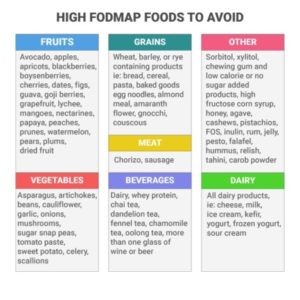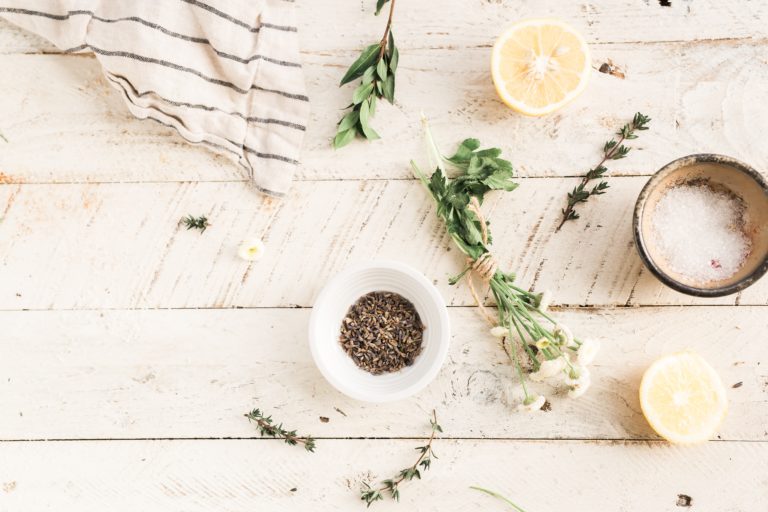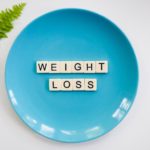Excerpt from Enlightened Weight Loss
Your gut hosts a hundred trillion bacteria and other microscopic bugs. You actually have more microbial DNA than human DNA in your body. Research is showing that there’s an important link between the type of microbes in your body and your likelihood of being overweight. Hosting and supporting the growth of the wrong bacteria can actually make you gain weight.
There are a lot of factors that influence the type of bacteria that live in your body.
- Urban areas breed a lot of unhealthy bacteria. Living in the city makes you more likely to have problems with your gut.
- Taking antibiotics kills off healthy bacteria in your body, leaving room for unhealthy bacteria to populate.
- Being born through a c-section means you were never exposed to a lot of the healthy bacteria you needed.
- Eating a diet high in fat and sugar and low in fiber will feed unhealthy bacteria and starve off healthy bacteria.
You are not doomed if you didn’t have a natural birth, live in the city, or if you’ve ever taken antibiotics. The right diet, supplements, activity, and reduced stress levels can impact your gut bacteria in a way that can help you lose weight.
Diet
High fiber foods like fruits, vegetables, beans, and legumes feed healthy bacteria, and foods that are high in fat and sugar feed unhealthy bacteria.
The following foods are called prebiotics, are particularly good at supporting healthy bacteria.
- Leeks
- Asparagus
- Chicory
- Artichokes
- Garlic
- Onions
- Wheat
- Bananas
- Oats
- Soybeans
The following foods contain healthy bacteria; however, they usually don’t contain high enough doses to alter your bacterial profile drastically, so you might want to consider taking probiotic supplements.
- Kefir
- Kimchi
- apple cider vinegar
- Sauerkraut
- Kombucha
- Miso
If you have digestive issues, then those foods and supplements can be bothersome, especially if you have chronic bloating. You would need to heal your gut before taking probiotics or eating some of those fiber-rich foods which we’ll cover next.
Supplementation
You don’t need to take probiotics to lose weight, but there are a lot of studies that show significant weight reduction from probiotic use. According to Consumer Lab, three strains of bacteria are particularly effective. Bifidobacterium breve, and Lactobacillus gasseri for both men and women. Lactobacillus rhamnosus for women in particular. Check with your doctor before you start taking any supplements because the FDA does not regulate them. These specific products have been rated and tested by Consumer Lab for purity, contamination, and digestibility.
Recommended Probiotics For Men And Women
Hyperbiotics Pro-15
Vegetarian, Non-GMO, Free from Yeast, Lactose, Soy, Iron, Gluten, Wheat, Nuts, Preservatives, Sugar, and Artificial Colors or Flavors. Timed-release.
Ingredients: Proprietary Probiotic Blend [L. plantarum, L. fermentum, L. acidophilus, B. infantis, L. casei, B. longum, L. rhamnosus, B. lactis, L. reuteri, L. salivarius, L. paracasei, L. gasseri, B. bifidum, B. breve, S. thermophilus] 5 Billion CFU, Prebiotic Fructooligosaccharides (FOS) 25 mg. Other Ingredients: Microcrystalline Cellulose, Hydroxypropyl Methylcellulose, Pectin, Stearic Acid, Sodium Carbonate, Guar Gum, Turmeric.
Probiotic For Women
Garden of Life® Dr. Formulated Probiotics Once Daily Women’s
Vegetarian, Non-GMO, Free from Gluten, Dairy, and Soy.
Ingredients: Women’s Daily Probiotic Blend [[Lactobacillus acidophilus, Lactobacillus plantarum, Lactobacillus casei, Lactobacillus paracasei, Lactobacillus bulgaricus, Lactobacillus brevis, Lactobacillus reuteri, Lactobacillus salivarius, Lactobacillus fermentum, Lactobacillus gasseri, Lactobacillus rhamnosus] Total Lacto Cultures (40 Billion CFU), [Bifidobacterium lactis, Bifidobacterium bifidum, Bifidobacterium breve, Bifidobacterium infantis, Bifidobacterium longum] Total Bifido Cultures (10 Billion CFU)] 248 mg] Total Probiotic Cultures 50 Billion CFU, Organic Prebiotic Fiber Blend [Organic Potato [Resistant Starch] (tuber), Organic Acacia Fiber (A. senegal)] 377 mg.
Exercise
Even low-intensity exercise changes the shape of the gut and blood flow to the gut in a healthy way. It also supports the growth of healthy bacteria. Even if it’s just low intensity. A lack of exercise will do the opposite, having an unhealthy impact on your digestive system.
For All Digestive Issues
Check With Your Doctor
It is usually nothing serious but check with a gastroenterologist to make sure your symptoms aren’t coming from Celiac Disease, Crohn’s Disease, diverticulitis, colitis, hernias, or ulcers. They can also check for small intestinal bacterial overgrowth, or SIBO, which is less serious but possibly in need of antibiotic treatment, if you aren’t able to treat it with diet and lifestyle alone.
Chew Thoroughly
The food you eat needs to be chewed thoroughly enough for digestive enzymes to break it down. Undigested food can lead to bloating and Irritable Bowel Syndrome (IBS). If you have trouble slowing down, then refer back to Part Two.
Don’t Eat When You’re Not Hungry
If you’re not hungry when you eat, then your body isn’t prepared with digestive enzymes to break your food down. If you find it hard to wait until you’re hungry, then refer back to Part Two.
Hydrate
Your gut needs to be hydrated to function properly because water is the base of digestive juices. Your gut is constantly reabsorbing water back into your body, so you should stay hydrated. Refer back to Part Two to find out how much water you should be drinking.
Destress
Your body does not have a built-in response to relationship problems or deadlines at work. It responds to any type of stress as a life-threatening situation. It redirects blood flow away from your gut and towards your muscles so you can fight or run away. During a time of stress, the last thing your body cares about is digesting your lunch. Refer back to Part Two for tips on how to reduce stress
IBS And Bloating
A lot of times, cutting back on wheat, dairy, sugar, and caffeine will drastically reduce bloating and IBS. But if you still have problems, it is worth trying a low FODMAP diet. FODMAP stands for fermentable oligosaccharides, disaccharides, monosaccharides, and polyols. Those are the types of sugars in certain foods that are easily fermented by the bacteria in your gut. The byproduct of the fermentation process are gases and toxins that lead to bloating, pain, and IBS.
Avoiding high FODMAP foods reduces bloating and IBS, but make sure you also drink enough water, only eat when you’re hungry, chew your food thoroughly, and relax. You don’t have to follow a low FODMAP diet forever. Try it for a few weeks, then reintroduce one high FODMAP food at a time.
Don’t take probiotics or fermented foods until your symptoms are resolved. And be careful about hidden high FODMAP ingredients, like garlic in spices and supplements.

Acid Reflux
You can find relief from acid reflux if you lose weight and avoid overeating but check with your doctor to make sure that you don’t have an infection from H. pylori or a structural issue in your stomach.
Your doctor might recommend reflux medication, but that can do more harm than good. Reflux medication reduces stomach acid, which helps you feel better initially. However, stomach acid is what keeps the sphincter in your esophagus tightly closed off from your stomach. Lowering the acid in your stomach with medication can actually loosen that sphincter and allow stomach acid to leak into your esophagus. The other problem with reducing acid with medication is that you need enough acid to kill off unhealthy bacteria and digest your food. Do what you can to control your symptoms naturally. The best way to reduce reflux is to relax and avoid overeating. But you should also try to:
- Reduce wheat, dairy, and caffeine consumption.
- Drink a cup of water 10 minutes before you eat to hydrate the layer under your stomach that neutralizes the acid.
- Drink teas like Throat Coat from Traditional Medicinals or Throat Comfort from Yogi. They have mucilaginous herbs that protect your esophagus from acid. It’ll alleviate symptoms but won’t solve any underlying causes of acid reflux like stress or overeating.



